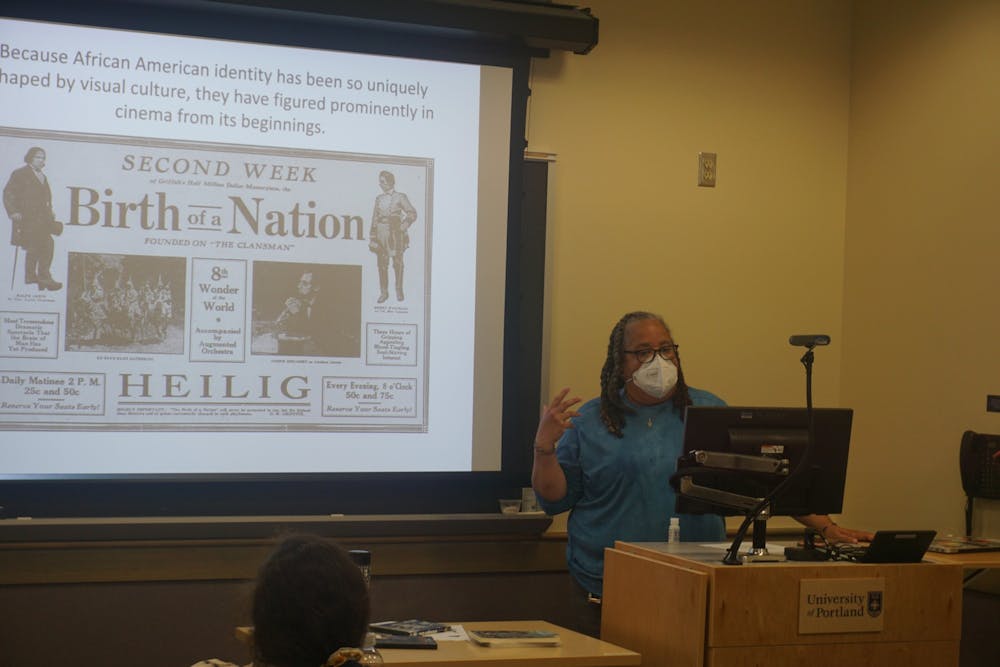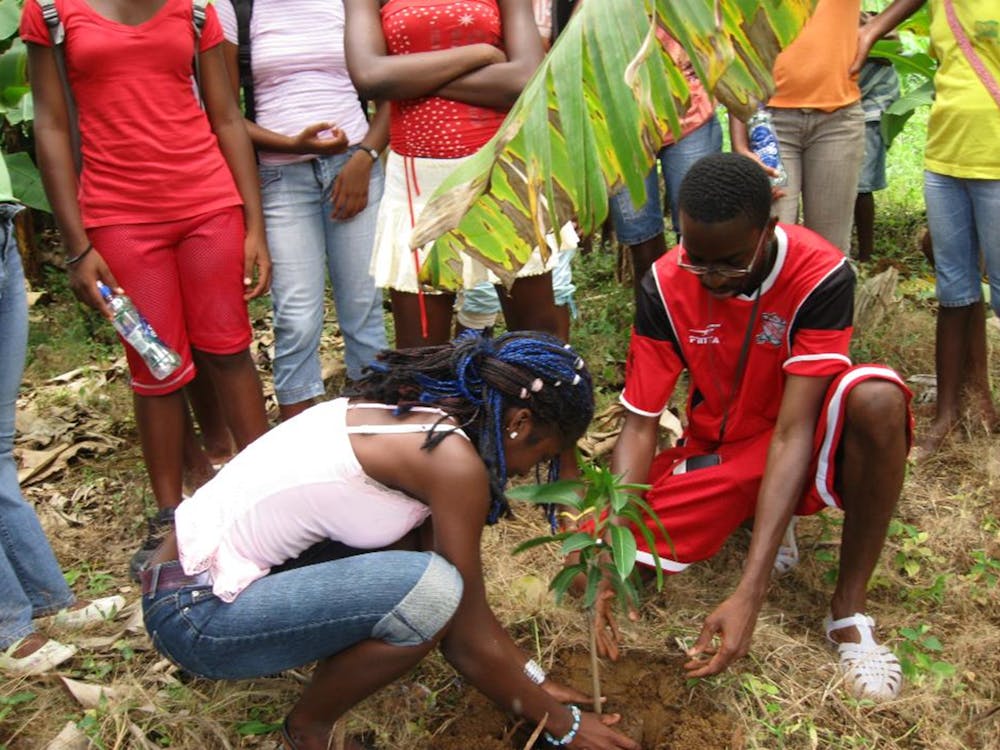Critical race theory continues to make national news, and schools are recognizing it as an important topic to address. From curriculum changes to heated school board arguments, the theory has proven to be an often controversial issue.
Amy Abugo Ongiri, the new director and professor of the Ethnic Studies program at UP, wants to lessen the debate and increase communal discussion.
“We can step back and say ‘well what is critical race theory and why is the idea of teaching it so upsetting to people?’” Ongiri said. “We can actually step back and think about those questions rather than just fight about (it).”
It’s with this mindset that Ongiri is leading the new Ethnic Studies program. According to them, the idea for the program was sparked in 2014. It is now coming to fruition years later with the official backing of the University.
The program faced challenges along the way. The search for a faculty member was halted in the spring of 2020 when the three remaining candidates for the position each declined the job.
Ongiri previously worked at Lawrence University in Appleton, Wisconsin where they were an associate professor and the Jill Beck director of film studies. They focused their work on visual culture and its connection to race, gender and identity.

Alumna Carolina Cortes, who graduated in May 2021, was also a key proponent in founding the program.
A former member of the Ethnic Studies student steering committee and a diversity collaborator, Cortes focused a significant amount of time and effort into formally introducing the program.
Though she won’t directly benefit from it, she’s excited to see future students take advantage of what the program has to offer.
“I’m proud of the work that we all did together to get this started,” Cortes said. “We had a lot of late nights, a lot of Zoom meetings and I’m just grateful that students (can) connect with the courses that I wished I could have had when I was still enrolled.”
Cortes worked alongside Sarina Saturn, a psychology professor and member of the Ethnic Studies search committee.
“In this role, I found it absolutely essential to follow student wisdom, especially student activists like Carolina (who) were doing all the work on the ground,” Saturn said. “I think (she) was instrumental to having the success of the search the second time.”
Ongiri intends for the program to focus on the interconnectedness of three main aspects: scholarship, community outreach and student support.
Portland also offers a one-of-a-kind experience due to the amount of large-scale demonstrations in the city’s past, including the Black Lives Matter protests over the summer of 2020.
“One of the goals of ethnic studies is to bring the campus community and the wider Portland community together more,” Ongiri said. “Hopefully we’ll be able to bring some activists from the community onto campus to talk about the unique situatedness of Portland and its incredible history of resistance.”
The notion of resistance also appears in many of the works analyzed within the ethnic studies courses.
“I think to get more into a specific area of Black resistance and to take a look at representation in film and how stories are told and how film portrays messages beyond the plot is really fascinating,” Gaby Mota, an Ethnic Studies student, said.
Ongiri also stresses that the program and its events aren’t just exclusively for students of color. In fact, according to Saturn and Ongiri, many of the students within ethnic studies are white.
“There’s a little bit of a myth that ethnic studies is just for students of color,” Ongiri said. “It’s not true. The majority of people who major in ethnic studies in the U.S. are actually white, but our idea is that everyone can benefit from thinking about race and ethnicity and the history and narrative and aesthetics of people who’ve been left out.”
Junior Jack Dinsmore, a current student of the ethnic studies program, acknowledges some of the discomfort associated with him taking the courses as a white male.
“As a cis-white man, my experience in society and my perception of the world around me is going to be very different from literally anybody else with any sort of marginalized identity,” Dinsmore said. “I would say the ethnic studies course definitely takes me out of my comfort zone.”

Likewise, many queer, transgender, black and indigineous people of color (BIPOC) students also have the opportunity to take part in the discussions cenetered around identity, culture and politics.
Senior Grace Fortson, who was also a member of the ethnic studies student steering committee, appreciates this aspect of the program and its organization that prioritizes student discussion.
“I think that community is a huge part of ethnic studies, to have that feeling of camaraderie and support, because, if you don’t, then it’s really hard to engage with those topics in a classroom setting and it’s really hard to engage with the realities of being a QTBIPOC student at a predominantly white institution,” Fortson said.
Student educational background also plays into the diversity of the program. Ongiri notes that UP’s ethnic studies program is unique because of the intense contributions from students within the science, technology, engineering and math (STEM) disciplines.
Ongiri is also optimistic that the students with backgrounds in liberal arts can offer diverse opinions, too, given the unique approach of a liberal arts education.
Through the combination of STEM and liberal arts students, Ongiri hopes to break down the generalizations that STEM exclusively deals with ‘facts’ and Liberal Arts only deals with ‘feelings’.
This allows for wider discussion between topics in both disciplines. Ongiri suggests using both fields to address topics like racism and its connection to environmental justice, for example.
The program’s approval and backing by the University also opens doors to greater opportunities. One of these benefits is the funding and resources that the program can now receive.
Ongiri hopes to further expand by aiming for an Ethnic Studies minor by the end of the year.
Senior Grace Adam emphasized community support when it comes to serving the students of color on campus for the future.
“People see statistics and think ‘oh, progress,’” Adam said. “It’s deeper than that. There’s more to it than just bringing more people of color in, (you’ve) got to support them.”
Looking to the future, the potential for increased diversity amongst UP students in the coming years could mean greater involvement between students and the Ethnic Studies program. Ongiri recognizes this and looks forward to leading a program that can benefit students.
“One of the realities is that the majority of college students in the next 20 years will be non-white,” Ongiri said. “If you don’t know how to serve non-white students and how to centralize their stories, your school isn’t going to be very attractive.”
Michael Lang is a news reporter for The Beacon. He can be reached at langm24@up.edu
Brie Haro contributed to this story. She can be reached at haro23@up.edu








